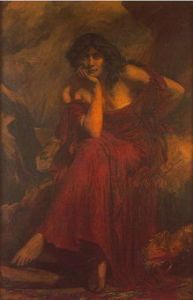![An illuminated Way ... [Image shared in an e-message from the University of Spiritual Healing & Sufism]](https://i0.wp.com/sophias-children.com/wp-content/uploads/2014/01/mason-jar-lights-in-tree.jpg?resize=228%2C300)
As was the case with many teachers of Wisdom along the way — telestai, Mystery initiates, and others — so has there been a concerted effort to erase Wisdom herself from our knowing.
I’ll be sharing more on a few of the former — the eradicated Telestai and initiate-teachers — but for now, let’s look at these questions:
Why has Wisdom been suppressed?
And why haven’t we been taught about Wisdom?
Here’s one perspective, and a good, plain-spoken one as far as my own sleuthing has shown.

In his book, The Divine Feminine in Biblical Literature, Rabbi Rami Shapiro* gives these three reasons for why Wisdom has been hidden away from us rather than overtly and generously taught to us:
1. “First because Wisdom is a woman and women haven’t fared well in the Western religious tradition of the past three thousand years.” Shapiro says that one way to “downplay the role of women” is “to ignore the role of the Mother, Chochma, in creation and the life of us creatures.”

by Nicholas Roerich
2. “Another reason for ignoring the teachings of Chochma (Wisdom) is that She is intrinsically antiestablishment and nonhierarchical,” writes Rabbi Shapiro. “At the heart of corporate religion is the question of power … Chochma and Her teachings are a direct challenge to this hierarchy.”
These are two powerful reasons, and for those who are looking and listening — those with the eyes to see and the ears to hear — they’re pretty obvious, if not optimal.
But the third reason offered by Rabbi Shapiro gets right to the heart of the suppression of Wisdom-Chochma, and the Feminine:
“The third reason She is known so rarely, then, is that those who could point Her out to us have no incentive for doing so. A priest or a minister who can convince you that priestcraft is essential to your salvation has just secured a job for life. Rabbis or Imams who can convince you that the proper (i.e. their) understanding of revelation and law are essential to your salvation have done the same.”
“But what do these leaders get from introducing you to Mother Wisdom? A pink slip.”
“Yes, there are sages who can bring you closer to Her, but once your yearning for Her has been kindled by the sage, She is willing to teach you Herself, and in doing so erases any permanent hierarchy of power.”

Rabbi Shapiro continues, “Chochma (Wisdom) doesn’t serve anyone’s quest for power and control over others. Her gift is power and control over yourself. That is why She is so rarely taught, and that is why She is so desperately needed.”
Well, there it is then … the real bottom line. Dominator Culture’s keynote is power over others, and that power is easily abused, as we’ve too often seen.
But Wisdom is the medicine, the illuminator of the path of reclaimed (and well-used) power, and we’re part of Her Dream Team.
As the old stories of myths tell us, Sophia, Wisdom dreamed us into being.
In remembering Her, we dream Wisdom back into the collective consciousness — we draw Her back from exile. And as we recollect Sophia, Wisdom, we really gather back together the lost and scattered fragments of ourselves.
Big Love,
* Find Rabbi Rami Shapiro here, and his book, The Divine Feminine in Biblical Literature, here.



February 3, 2016 at 9:26 pm
Fabulous. I was asking out a question this morning about wisdom, and here’s this wise article! Well done. xxo
February 4, 2016 at 4:49 pm
Ask and you shall receive, dear Dayna. 😉 Funny how that works. It was good to be reminded of that one in the Sophia’s Children ‘treasure vault’ (a.k.a. archives), though … I’d linked to it in a previous Imbolc article. Glad it was timely for you. xoxo Love, Jamie